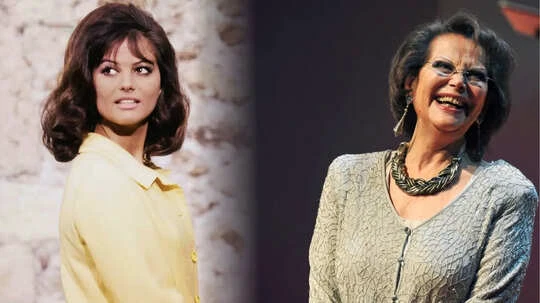Claudia Cardinale, a star whose allure and versatility made her a fixture of 1960s world cinema, passed away Tuesday in Nemours, France.
Born Claude Joséphine Rose Cardinale on April 15, 1938, in La Goulette, Tunisia, she quickly captivated filmmakers with her copper hair, smoky voice, and magnetic presence. Her career included nearly 130 films, spanning the surrealism of Federico Fellini’s 8½ to the comedic charm of Blake Edwards’ The Pink Panther.
Her agent Laurent Savry confirmed that Cardinale died peacefully at her Nemours home, a quiet retreat she shared with filmmaker Pasquale Squitieri, from natural causes. She had been largely out of the public eye since 2022, following complications from a 2019 hip surgery. French daily Le Monde observed she had “faded gracefully,” with no prolonged illness reported. In keeping with French privacy laws, no autopsy or medical details were released.
Discovered at 18 through a beauty contest organized by the Italian embassy, she immediately drew attention and traveled to the Venice Film Festival, where her poise and beauty earned her a lasting place in cinema history. “In Tunis, like most women, I wore bikini tops. That’s what I wore in Venice,” Cardinale later recounted to the Wall Street Journal, “People looked at me as though I had come from another planet.”
Iconic Roles That Defined an Era
Cardinale’s breakthrough came with Luchino Visconti’s Rocco and His Brothers (1960) and The Leopard (1963), where she portrayed a shrewd, seductive commoner, captivating audiences alongside Burt Lancaster and Alain Delon. In Sergio Leone’s Once Upon a Time in the West (1968), she played a widowed homesteader defending her land-a rare role granting central agency to a woman in western cinema. Cardinale later told the Daily Telegraph: “In Leone’s westerns, the woman usually had a limited space-but in this film, everything revolved around her.”
She also starred in Cartouche with Jean-Paul Belmondo and shared screens with Hollywood icons like John Wayne, Tony Curtis, and Peter Sellers. Yet she largely declined American studio contracts, seeking richer, more complex European roles. Her performance in Werner Herzog’s Fitzcarraldo (1982) as a brothel madam navigating the Amazon’s wilds remains legendary, with Cardinale describing it as “the best adventure of my life.”
Personal Triumphs and Advocacy
Off-screen, Cardinale overcame immense personal challenges. After a traumatic assault in Tunisia, she gave birth to her son Patrick, shielding him from public scrutiny. Her early career was shaped under producer Franco Cristaldi, who both discovered her and exercised strict control over her life. Later, she forged independence in Paris, continued acting in prominent European films, and championed women’s rights and environmental causes through her foundation.
Cardinale’s legacy is one of resilience, talent, and influence. As she once reflected to The Guardian: “You can live many lives, instead of one. I think I’ve been lucky.” Cinema has lost a rare star, but her work will continue to inspire generations.
